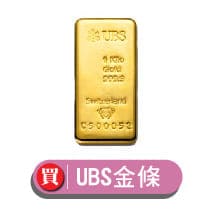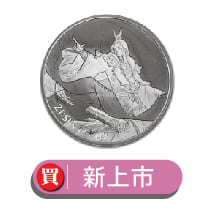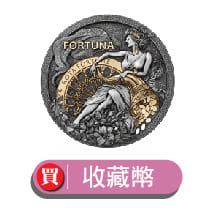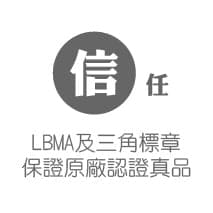A World of Inflation and Permanent Distortion
通貨膨脹和永久扭曲的世界
By Byron King
July 24, 2021
“Inflation is an insidious form of public finance,”said Bill Bonner, founder of Agora Financial. He spoke the other day at the 2021 Symposium on Natural Resource Investing, sponsored by old friend Rick Rule.
“通貨膨脹是一種陰險的公共財政形式,”Agora Financial 的創始人比爾·邦納 (Bill Bonner) 說。前幾天,他在由老朋友 Rick Rule* 贊助的 2021 年自然資源投資研討會上發表了講話。
*Rick Rule: Sprott US Holdings Inc. 社長/CEO。自然資源與大宗商品投資傳奇人物。
Bill’s talk wrapped up three days of online (due to COVID) discussion about subjects we review often here at the Whiskey bar. That is, how government spending, plus bottomless debt, has ruined the classic investment landscape, if not the very money in your pocket.
比爾的演講結束了為期三天的在線(由於 COVID)關於我們經常在威士忌酒吧回顧的主題的討論。也就是說,政府支出,加上無底的債務,是如何破壞了經典的投資格局,如果不是你口袋裡的錢。
Sure, we still use fiat currencies – dollars, euros, pounds, yen, yuan, etc. – for everything from day-to-day transactions to running the global economy. And really, who amongst us would not bend over to pick up a $5 bill on the loose, blowing across the parking lot?
當然,從日常交易到運行全球經濟,我們仍然使用法定貨幣——美元、歐元、英鎊、日元、人民幣等。真的,我們中間誰不會彎腰撿起一張 5 美元的鈔票,吹過停車場?
But globally, central banks have sown the seeds of a looming monetary catastrophe. It’s bad now, getting worse by the month and there’s no way out using current monetary tools. People with serious money know this.
但在全球範圍內,央行已經播下了迫在眉睫的貨幣災難的種子。現在很糟糕,每個月都在惡化,使用當前的貨幣工具沒有出路。有錢的人都知道。
In an earlier article, I discussed how wealthy people are converting cash to hard assets like silver. That, and much more.
在之前的一篇文章中,我討論了富人如何將現金轉換為白銀等硬資產。那個,還有更多。
Let’s dig in to some other takeaways from the symposium…
讓我們深入了解研討會的其他一些要點……
“The elite control government,” said friend Bill, matter-of-factly, continuing his talk. “And government controls inflation.”
“精英控制政府,”朋友比爾實事求是地說,繼續他的談話。 “而且政府控制通貨膨脹。”
Bill explained that 1987 was a monetary turning point. Back then, Alan Greenspan was running the Federal Reserve and a sudden, sharp market downturn struck in late October.
比爾解釋說,1987 年是一個貨幣轉折點。當時,艾倫·格林斯潘 (Alan Greenspan) 正在管理聯準會,10 月底市場突然急劇下滑。
Greenspan saw a crash coming but apparently, he didn’t want something like that in his logbook. Not on his watch, eh? Thus did Greenspan use the power of the central bank to intervene. He lowered interest rates and increased money supply. And that set the modern precedent.
格林斯潘看到一場車禍即將來臨,但顯然,他不希望在他的日誌中出現這樣的事情。既也不希望在他任內,嗯?格林斯潘就是這樣利用中央銀行的權力進行干預的。他降低了利率並增加了貨幣供應量。這開創了現代先例。
Ever since Greenspan’s manipulations, through thick and thin, the Fed has backstopped rising markets. Whenever something bad appeared on the horizon (“bad,” as in it might cost Wall Street money), the Fed lowered interest rates or pumped liquidity out into the economy. It’s how central bankers don’t do central banking anymore.
自從格林斯潘的操縱以來,聯準會一直在支持不斷上漲的市場。每當出現不好的事情(“壞”,因為它可能會花費華爾街的錢)時,聯準會就會降低利率或向經濟注入流動性。這就是中央銀行家不再從事中央銀行業務的方式。
The problem, though, is that markets have moved up so high that it’s difficult to conceive how they can move higher. All that liquidity, created from the ether and listed on central bank balance sheets, has “borrowed” growth from the future and channeled it into current consumption.
然而,問題在於市場已經上漲得如此之高,以至於很難想像它們如何能夠走得更高。所有這些由以太幣創造並列在央行資產負債表上的流動性,都“借用”了未來的增長,並將其轉化為當前的消費。
Fed money first takes the express train from Washington to New York, where it stops at the Wall Street Station, there to unload into the coffers of stock and bond traders, bankers and the like. That’s why we’ve seen eye-popping levitations of stock prices and indexes.
聯準會的錢首先乘坐特快列車從華盛頓到紐約,在那裡停靠華爾街站,在那裡卸載到股票和債券交易員、銀行家等的金庫中。這就是為什麼我們看到股票價格和指數令人瞠目結舌的懸浮。
The Wall Street money flows outward into other, high-end asset inflation: Fancy real estate; and certainly, Park Avenue apartments and Hamptons estates come to mind. Plus other baubles of the wealthy, like top-shelf artwork, cars, private jets, jewelry and such.
華爾街的資金向外流入其他高端資產通脹:花式房地產;當然,想到公園大道公寓和漢普頓莊園。再加上富人的其他小玩意,如頂級藝術品、汽車、私人飛機、珠寶等。
At the same time, there was a slightly different turn of events over the past 18 months, courtesy of COVID. We’ve seen a couple trillion of those new Fed dollars wash out from the Wall Street sluice gates and flow into the overall economy. It was via programs like “Paycheck Protection,” increased unemployment comp, those so-called “stimmy” checks and more.
與此同時,由於 COVID,過去 18 個月發生了略有不同的事件轉變。我們已經看到,有幾萬億新的聯準會美元從華爾街的閘門流出,流入整體經濟。它是通過“薪資保護”、增加失業補償、所謂的“穩健”支票等計劃實現的。
And now we witness the opening act of inflation, as all that new money chases a COVID-constrained supply of goods. You see it from higher-priced food on store shelves to pricey gasoline at the filling station, and in autos, housing (for regular people, versus the mansion-buyers) and things like lumber and components of home additions.
現在我們目睹了通貨膨脹的開始,因為所有這些新資金都在追逐受 COVID 限制的商品供應。從商店貨架上的高價食品到加油站的昂貴汽油,以及汽車、住房(對於普通人而言,與豪宅買家相比)以及木材和房屋配件等物品。
Which brings us back to Bill’s point that we’re in an inflationary time because of the country’s central bank. Yet per Bill, the Fed can’t tighten because that would involve higher interest rates and less money creation.
這讓我們回到比爾的觀點,即由於該國的中央銀行,我們正處於通貨膨脹時期。然而,根據法案,聯準會不能收緊,因為這將涉及更高的利率和更少的貨幣創造。
“Higher interest rates and tighter money are a catastrophe for the rich,” said Bill. “The whole capital structure of the U.S. would collapse. The government couldn’t finance its operations, let alone service its debt.”
“更高的利率和更緊縮的貨幣對富人來說是一場災難,”比爾說。 “美國的整個資本結構將崩潰。政府無法為其運營提供資金,更不用說償還債務了。”
And thus does the monetary ship of state sail on into the night, faster and faster into dark waters where more and more icebergs float.
因此,國家的貨幣之船駛入黑夜,越來越快地駛入越來越多的冰山漂浮的黑暗水域。
“Inflation is a tax,” Bill continued. “It’s paid by 90% of the people, the ones on the lower end of the economic scale. And it redistributes wealth to the top 10%.”
Bill’s talk dovetailed with what we learned from friend and colleague Jim Rickards, who discussed what he calls the “four futures of money.”
“通貨膨脹是一種稅收,”比爾繼續說道。 “它由 90% 的人支付,這些人處於經濟規模的低端。它將財富重新分配給前 10% 的人。”
Bill 的演講與我們從朋友兼同事 Jim Rickards 那裡學到的東西相吻合,後者討論了他所謂的“貨幣的四種未來”。
That is, looking ahead, Jim foresees the current regime of global currencies fading away, to be replaced by some future combination of gold, cryptocurrency, special drawing rights (SDRs) and central bank digital currencies (CBDCs).
也就是說,展望未來,吉姆預見當前的全球貨幣制度將逐漸消失,取而代之的是黃金、加密貨幣、特別提款權 (SDR) 和中央銀行數字貨幣 (CBDC) 的未來組合。
Gold is, of course, the 5,000-year-old failsafe. It’s been around across human history and there’s no reason to think it won’t remain as a means to preserve wealth over time.
當然,黃金是具有 5,000 年曆史的故障保險。它在人類歷史上一直存在,沒有理由認為它不會隨著時間的推移而作為一種保存財富的手段。
But“nobody in power talks about gold,” said Jim. “They don’t want to undermine the power of their printing press.” That is, politicians and monetary gurus have a good thing going just now, in which they create money in a computer and spread it around. It beats working for a living.
但“沒有掌權者談論黃金,”吉姆說。 “他們不想破壞印刷機的力量。”也就是說,政客和貨幣大師們剛剛有一件好事,他們在計算機上創造金錢並四處傳播。它勝過以工作為生。
At the same time, per Jim, “the global economy doesn’t run just on money. It runs on credit.”
與此同時,根據吉姆的說法,“全球經濟不僅僅靠金錢運行。它靠信貸運行。”
Thus any sort of modern economy can’t be based on the quaint idea of trading gold bars for goods. That may have worked 300 years ago, and far longer if you go back in history, but it won’t fly in today’s tightly integrated world.
因此,任何形式的現代經濟都不能基於用金條換取商品的古怪想法。這可能在 300 年前奏效,如果你回顧歷史,時間會更長,但它不會在當今緊密集成的世界中飛翔。
There must be a way to denominate currencies such that they have backing, so people can compare and value one form of currency with another. It’s much like what people did at Bretton Woods in 1944 (Whiskey, July 10), with a gold-backed dollar.
必須有一種方法來為貨幣計價,以便它們得到支持,以便人們可以將一種形式的貨幣與另一種形式的貨幣進行比較和估價。這很像人們在 1944 年(威士忌,7 月 10 日)用黃金支持的美元在布雷頓森林體系中所做的。
But alas, in August 1971 President Nixon “closed the gold window,” as the saying goes (the 50th anniversary of which is coming up in a few weeks). And ever since, the global economy has been running on the strength, or not, of the U.S. dollar tied to the price of Middle Eastern oil.
但可惜的是,1971 年 8 月,尼克松總統“關閉了黃金擠兌之窗”,正如俗話所說(幾週後就是50週年紀念日)。從那時起,全球經濟一直依靠與中東石油價格掛鉤的美元走強或不走強。
Meanwhile, there’s a move away from the very idea of national currencies, courtesy of crypto, of which the biggest name is Bitcoin. “But Bitcoin is anti-credit,” Jim pointed out.
與此同時,由加密貨幣提供的國家貨幣的想法正在發生變化,其中最大的名字是比特幣。“但比特幣是反信用的,”吉姆指出。
“We’re immersed in a digital ocean,” said Jim, in which over 4,000 distinct cryptos compete for attention and valuation with no semblance of homogeneity. “Nobody is in charge.”
“我們沉浸在數字海洋中, “吉姆說,其中有 4,000 多種不同的加密貨幣在爭奪注意力和估值,但沒有任何同質性。“沒人管。”
Meanwhile, cryptos in general (certainly Bitcoin) only come into existence through use of large amounts of electricity to run and cool banks of computers. Yet the end result is a code or key, and nothing tactile. “At least when you use energy to mine gold, you have gold,” said Jim.
同時,一般而言,加密貨幣(當然是比特幣)只能通過使用大量電力來運行和冷卻計算機銀行而存在。然而,最終的結果是一個代碼或鑰匙,沒有任何觸覺。 “至少當你用能源開採黃金時,你就有了黃金,”吉姆說。
“With Bitcoin,” Jim continued, “it seems like people are losing sight of what money really is.” That is, Bitcoin fits nicely into a world where literally hundreds of millions of people play video games. In that respect alone, the idea of cryptocurrency runs the risk of turning money into just another game as well.
“對於比特幣,”吉姆繼續說道,“似乎人們正在忽視金錢的真正含義。”也就是說,比特幣非常適合數億人玩電子遊戲的世界。僅在這方面,加密貨幣的想法也冒著將金錢變成另一種遊戲的風險。
“Bitcoin won’t displace the dollar,” said Jim, “but along the way it could definitely help destroy the dollar.”
“比特幣不會取代美元,”吉姆說,“但在此過程中,它肯定會幫助摧毀美元。”
Then Jim addressed SDRs, which have been around for many decades, but which are about to see a major expansion. In essence, developed nations (meaning the U.S.) will create a batch of SDRs with an initial ante of $650 billion and give access to the funds for many underdeveloped countries.
然後,Jim 談到了SDR,它已經存在了幾十年,但即將出現重大擴張。從本質上講,發達國家(即美國)將創建一批初始賭注為 6500 億美元的特別提款權,並為許多不發達國家提供資金。
SDRs are not dollars. They’re more of a basket of assets that include dollars. And yes, they will have value. But in a world where other governments like the U.S., China, the European Union and more routinely spend multitrillions of dollars, SDRs won’t become the global reserve. Not anytime soon.
特別提款權不是美元。它們更像是一籃子資產,包括美元。是的,它們將有價值。但在美國、中國、歐盟等其他政府經常花費數万億美元的世界裡,特別提款權不會成為全球儲備。不會很快。
And then there are CBDCs, which are at root national currencies, but far more tied to the central bank origin via electronic tagging.
然後是 CBDC**,它們以本國貨幣為根基,但通過電子標籤與中央銀行的起源更緊密地聯繫在一起。
** CBDCs (Central BankDigital Currencies) 意旨中央銀行數位(虛擬)貨幣
With CBDCs, it’s not difficult to envision a cashless (and dystopian) world in which everyone banks at the central bank. Traditional banking has been what’s called “disintermediated,” meaning that it’s just gone. There are no more banks, nor are there credit card companies.
有了 CBDC,不難想像一個無現金(和反烏托邦)世界,每個人都在中央銀行存錢。傳統銀行業一直是所謂的“非中介”,這意味著它剛剛消失。沒有更多的銀行,也沒有信用卡公司。
Basically, everything runs through your personal account at the Fed, or other central bank of a different nation. And right away, CBDCs present a “single point of failure” issue. Lose your account or access for any reason and you are written off from the system.
基本上,一切都通過您在聯準會或其他國家的其他中央銀行的個人賬戶進行。馬上,CBDC 就出現了“單點故障”問題。由於任何原因丟失您的帳戶或訪問權限,您將從系統中註銷。
So what’s a person to do just now?
那麼個人現在該怎麼辦呢?
Well, we live in a world where major markets are in a state of permanent distortion.
好吧,我們生活在一個主要市場處於永久扭曲狀態的世界。
Old friend Adrian Day offered his ideas for how to keep ahead of the fickle markets. He looks for companies that pay strong dividends, and/or things that are out of favor. In general he’s entirely bullish on hard assets like gold, silver and selected commodities.
老朋友阿德里安·戴 (Adrian Day) 提出了他關於如何領先於多變市場的想法。他尋找支付高股息的公司和/或不受歡迎的公司。總的來說,他完全看好黃金、白銀和精選實體商品等硬資產。
Adrian mentioned several companies that he has screened for solid balance sheets and cash flow. These include Hutchison Port Holdings Trust (OTCBB: HCTPF), currently yielding over 6% on dividend. Vodafone Group Plc (NASDAQ: VOD), currently yielding 7% on dividend. And GlaxoSmithKline plc (NYSE: GSK), currently yielding over 5.5% on dividend.
阿德里安提到了幾家公司,他已經篩選出穩健的資產負債表和現金流。其中包括和記港口控股信託(OTCBB:HCTPF),目前股息收益率超過 6%。 Vodafone Group Plc(納斯達克股票代碼:VOD),目前股息收益率為 7%。葛蘭素史克公司(紐約證券交易所代碼:GSK)目前的股息收益率超過 5.5%。
Meanwhile, Adrian believes that “gold stocks are the single-best risk-reward play in the market.”
與此同時,阿德里安認為“黃金股是市場上最好的單一風險回報組合。”
According to Adrian, the major and most intermediate gold miners are “unquestionably better companies today than they were 15 years ago,” yet they sell for a relative song. “They’re not overleveraged anymore, and they’ve paid down debt.” Company management teams are focused on delivering “profitable ounces.”
根據阿德里安的說法,主要和大多數中級金礦商“今天無疑是比 15 年前更好的公司”,但他們的銷售價格相對較低。 “他們不再過度槓桿化了,他們已經還清了債務。”公司管理團隊專注於提供“有利可圖的盎司”。
Meanwhile, copper companies are a strong idea as well. Per Adrian, it’s a combination of declining output from older mines and constrained supply from new locales. “Discoveries are rare,” said Adrian, echoing what we’ve mentioned before here in Whiskey.
同時,銅公司也是一個強有力的想法。根據 Adrian 的說法,這是老礦山產量下降和新地點供應受限的結合。 “發現很少見,”阿德里安說,呼應了我們之前在威士忌中提到的內容。
And as fate would have it, in Monday’s Wall Street Journal was an article titled “China Fights High Commodity Prices,” detailing an effort by Chinese authorities to keep a lid on copper prices by selling state stockpiles. It’s not working, per the Journal.
正如命運所願,週一的《華爾街日報》刊登了一篇題為“中國抗擊過高商品價格”的文章,詳細介紹了中國當局通過出售國有庫存來控制銅價的努力。據《華爾街日報》報導,這行不通。
And then in a later article, The Wall Street Journal discussed how mining giant BHP is raking in profits on current production, with very modest plans to expand at present. In other words, BHP will not sacrifice its capital and borrowing power to make massive new investments in future output. Instead, it will just keep operating efficiently and generate cash and dividends for the shareholders.
然後在後來的一篇文章中,華爾街日報討論了礦業巨頭必和必拓如何從目前的產量中獲利,目前的擴張計劃非常溫和。換句話說,必和必拓不會犧牲其資本和借貸能力來對未來的產出進行大規模的新投資。相反,它只會保持高效運營並為股東創造現金和股息。
In the end, it’s a dangerous era. We live in a world whose monetary base is far overextended, and which has financial collapse built into it from many angles. At the same time, the world of hard assets remains underappreciated and undervalued, yet critically necessary literally to keep the lights on.
最後,這是一個危險的時代。我們生活在一個貨幣基礎遠遠過度擴張的世界,並且從許多角度來看金融崩潰。與此同時,硬資產世界仍然被低估和低估,但從字面上看,這對於保持亮燈至關重要。
It’s a good time to be buying into gold and silver, plus mining shares that represent wealth in the ground. We’ll discuss it more in other articles.
現在是買入黃金和白銀以及代表地下財富的礦業股票的好時機。我們將在其他文章中更多地討論它。
On that note, I rest my case.
此刻,我結束我的觀點。
Byron King
Managing Editor, Whiskey & Gunpowder
炫麗 Shiny黃金白銀交易所
引用: Whiskey & Gunpowder
*文章內容為筆者個人見解,僅供參考。恕不代表本站立場
通貨膨脹和永久扭曲的世界
By Byron King
July 24, 2021
“Inflation is an insidious form of public finance,”said Bill Bonner, founder of Agora Financial. He spoke the other day at the 2021 Symposium on Natural Resource Investing, sponsored by old friend Rick Rule.
“通貨膨脹是一種陰險的公共財政形式,”Agora Financial 的創始人比爾·邦納 (Bill Bonner) 說。前幾天,他在由老朋友 Rick Rule* 贊助的 2021 年自然資源投資研討會上發表了講話。
*Rick Rule: Sprott US Holdings Inc. 社長/CEO。自然資源與大宗商品投資傳奇人物。
Bill’s talk wrapped up three days of online (due to COVID) discussion about subjects we review often here at the Whiskey bar. That is, how government spending, plus bottomless debt, has ruined the classic investment landscape, if not the very money in your pocket.
比爾的演講結束了為期三天的在線(由於 COVID)關於我們經常在威士忌酒吧回顧的主題的討論。也就是說,政府支出,加上無底的債務,是如何破壞了經典的投資格局,如果不是你口袋裡的錢。
Sure, we still use fiat currencies – dollars, euros, pounds, yen, yuan, etc. – for everything from day-to-day transactions to running the global economy. And really, who amongst us would not bend over to pick up a $5 bill on the loose, blowing across the parking lot?
當然,從日常交易到運行全球經濟,我們仍然使用法定貨幣——美元、歐元、英鎊、日元、人民幣等。真的,我們中間誰不會彎腰撿起一張 5 美元的鈔票,吹過停車場?
But globally, central banks have sown the seeds of a looming monetary catastrophe. It’s bad now, getting worse by the month and there’s no way out using current monetary tools. People with serious money know this.
但在全球範圍內,央行已經播下了迫在眉睫的貨幣災難的種子。現在很糟糕,每個月都在惡化,使用當前的貨幣工具沒有出路。有錢的人都知道。
In an earlier article, I discussed how wealthy people are converting cash to hard assets like silver. That, and much more.
在之前的一篇文章中,我討論了富人如何將現金轉換為白銀等硬資產。那個,還有更多。
Let’s dig in to some other takeaways from the symposium…
讓我們深入了解研討會的其他一些要點……
“The elite control government,” said friend Bill, matter-of-factly, continuing his talk. “And government controls inflation.”
“精英控制政府,”朋友比爾實事求是地說,繼續他的談話。 “而且政府控制通貨膨脹。”
Bill explained that 1987 was a monetary turning point. Back then, Alan Greenspan was running the Federal Reserve and a sudden, sharp market downturn struck in late October.
比爾解釋說,1987 年是一個貨幣轉折點。當時,艾倫·格林斯潘 (Alan Greenspan) 正在管理聯準會,10 月底市場突然急劇下滑。
Greenspan saw a crash coming but apparently, he didn’t want something like that in his logbook. Not on his watch, eh? Thus did Greenspan use the power of the central bank to intervene. He lowered interest rates and increased money supply. And that set the modern precedent.
格林斯潘看到一場車禍即將來臨,但顯然,他不希望在他的日誌中出現這樣的事情。既也不希望在他任內,嗯?格林斯潘就是這樣利用中央銀行的權力進行干預的。他降低了利率並增加了貨幣供應量。這開創了現代先例。
Ever since Greenspan’s manipulations, through thick and thin, the Fed has backstopped rising markets. Whenever something bad appeared on the horizon (“bad,” as in it might cost Wall Street money), the Fed lowered interest rates or pumped liquidity out into the economy. It’s how central bankers don’t do central banking anymore.
自從格林斯潘的操縱以來,聯準會一直在支持不斷上漲的市場。每當出現不好的事情(“壞”,因為它可能會花費華爾街的錢)時,聯準會就會降低利率或向經濟注入流動性。這就是中央銀行家不再從事中央銀行業務的方式。
The problem, though, is that markets have moved up so high that it’s difficult to conceive how they can move higher. All that liquidity, created from the ether and listed on central bank balance sheets, has “borrowed” growth from the future and channeled it into current consumption.
然而,問題在於市場已經上漲得如此之高,以至於很難想像它們如何能夠走得更高。所有這些由以太幣創造並列在央行資產負債表上的流動性,都“借用”了未來的增長,並將其轉化為當前的消費。
Fed money first takes the express train from Washington to New York, where it stops at the Wall Street Station, there to unload into the coffers of stock and bond traders, bankers and the like. That’s why we’ve seen eye-popping levitations of stock prices and indexes.
聯準會的錢首先乘坐特快列車從華盛頓到紐約,在那裡停靠華爾街站,在那裡卸載到股票和債券交易員、銀行家等的金庫中。這就是為什麼我們看到股票價格和指數令人瞠目結舌的懸浮。
The Wall Street money flows outward into other, high-end asset inflation: Fancy real estate; and certainly, Park Avenue apartments and Hamptons estates come to mind. Plus other baubles of the wealthy, like top-shelf artwork, cars, private jets, jewelry and such.
華爾街的資金向外流入其他高端資產通脹:花式房地產;當然,想到公園大道公寓和漢普頓莊園。再加上富人的其他小玩意,如頂級藝術品、汽車、私人飛機、珠寶等。
At the same time, there was a slightly different turn of events over the past 18 months, courtesy of COVID. We’ve seen a couple trillion of those new Fed dollars wash out from the Wall Street sluice gates and flow into the overall economy. It was via programs like “Paycheck Protection,” increased unemployment comp, those so-called “stimmy” checks and more.
與此同時,由於 COVID,過去 18 個月發生了略有不同的事件轉變。我們已經看到,有幾萬億新的聯準會美元從華爾街的閘門流出,流入整體經濟。它是通過“薪資保護”、增加失業補償、所謂的“穩健”支票等計劃實現的。
And now we witness the opening act of inflation, as all that new money chases a COVID-constrained supply of goods. You see it from higher-priced food on store shelves to pricey gasoline at the filling station, and in autos, housing (for regular people, versus the mansion-buyers) and things like lumber and components of home additions.
現在我們目睹了通貨膨脹的開始,因為所有這些新資金都在追逐受 COVID 限制的商品供應。從商店貨架上的高價食品到加油站的昂貴汽油,以及汽車、住房(對於普通人而言,與豪宅買家相比)以及木材和房屋配件等物品。
Which brings us back to Bill’s point that we’re in an inflationary time because of the country’s central bank. Yet per Bill, the Fed can’t tighten because that would involve higher interest rates and less money creation.
這讓我們回到比爾的觀點,即由於該國的中央銀行,我們正處於通貨膨脹時期。然而,根據法案,聯準會不能收緊,因為這將涉及更高的利率和更少的貨幣創造。
“Higher interest rates and tighter money are a catastrophe for the rich,” said Bill. “The whole capital structure of the U.S. would collapse. The government couldn’t finance its operations, let alone service its debt.”
“更高的利率和更緊縮的貨幣對富人來說是一場災難,”比爾說。 “美國的整個資本結構將崩潰。政府無法為其運營提供資金,更不用說償還債務了。”
And thus does the monetary ship of state sail on into the night, faster and faster into dark waters where more and more icebergs float.
因此,國家的貨幣之船駛入黑夜,越來越快地駛入越來越多的冰山漂浮的黑暗水域。
“Inflation is a tax,” Bill continued. “It’s paid by 90% of the people, the ones on the lower end of the economic scale. And it redistributes wealth to the top 10%.”
Bill’s talk dovetailed with what we learned from friend and colleague Jim Rickards, who discussed what he calls the “four futures of money.”
“通貨膨脹是一種稅收,”比爾繼續說道。 “它由 90% 的人支付,這些人處於經濟規模的低端。它將財富重新分配給前 10% 的人。”
Bill 的演講與我們從朋友兼同事 Jim Rickards 那裡學到的東西相吻合,後者討論了他所謂的“貨幣的四種未來”。
That is, looking ahead, Jim foresees the current regime of global currencies fading away, to be replaced by some future combination of gold, cryptocurrency, special drawing rights (SDRs) and central bank digital currencies (CBDCs).
也就是說,展望未來,吉姆預見當前的全球貨幣制度將逐漸消失,取而代之的是黃金、加密貨幣、特別提款權 (SDR) 和中央銀行數字貨幣 (CBDC) 的未來組合。
Gold is, of course, the 5,000-year-old failsafe. It’s been around across human history and there’s no reason to think it won’t remain as a means to preserve wealth over time.
當然,黃金是具有 5,000 年曆史的故障保險。它在人類歷史上一直存在,沒有理由認為它不會隨著時間的推移而作為一種保存財富的手段。
But“nobody in power talks about gold,” said Jim. “They don’t want to undermine the power of their printing press.” That is, politicians and monetary gurus have a good thing going just now, in which they create money in a computer and spread it around. It beats working for a living.
但“沒有掌權者談論黃金,”吉姆說。 “他們不想破壞印刷機的力量。”也就是說,政客和貨幣大師們剛剛有一件好事,他們在計算機上創造金錢並四處傳播。它勝過以工作為生。
At the same time, per Jim, “the global economy doesn’t run just on money. It runs on credit.”
與此同時,根據吉姆的說法,“全球經濟不僅僅靠金錢運行。它靠信貸運行。”
Thus any sort of modern economy can’t be based on the quaint idea of trading gold bars for goods. That may have worked 300 years ago, and far longer if you go back in history, but it won’t fly in today’s tightly integrated world.
因此,任何形式的現代經濟都不能基於用金條換取商品的古怪想法。這可能在 300 年前奏效,如果你回顧歷史,時間會更長,但它不會在當今緊密集成的世界中飛翔。
There must be a way to denominate currencies such that they have backing, so people can compare and value one form of currency with another. It’s much like what people did at Bretton Woods in 1944 (Whiskey, July 10), with a gold-backed dollar.
必須有一種方法來為貨幣計價,以便它們得到支持,以便人們可以將一種形式的貨幣與另一種形式的貨幣進行比較和估價。這很像人們在 1944 年(威士忌,7 月 10 日)用黃金支持的美元在布雷頓森林體系中所做的。
But alas, in August 1971 President Nixon “closed the gold window,” as the saying goes (the 50th anniversary of which is coming up in a few weeks). And ever since, the global economy has been running on the strength, or not, of the U.S. dollar tied to the price of Middle Eastern oil.
但可惜的是,1971 年 8 月,尼克松總統“關閉了黃金擠兌之窗”,正如俗話所說(幾週後就是50週年紀念日)。從那時起,全球經濟一直依靠與中東石油價格掛鉤的美元走強或不走強。
Meanwhile, there’s a move away from the very idea of national currencies, courtesy of crypto, of which the biggest name is Bitcoin. “But Bitcoin is anti-credit,” Jim pointed out.
與此同時,由加密貨幣提供的國家貨幣的想法正在發生變化,其中最大的名字是比特幣。“但比特幣是反信用的,”吉姆指出。
“We’re immersed in a digital ocean,” said Jim, in which over 4,000 distinct cryptos compete for attention and valuation with no semblance of homogeneity. “Nobody is in charge.”
“我們沉浸在數字海洋中, “吉姆說,其中有 4,000 多種不同的加密貨幣在爭奪注意力和估值,但沒有任何同質性。“沒人管。”
Meanwhile, cryptos in general (certainly Bitcoin) only come into existence through use of large amounts of electricity to run and cool banks of computers. Yet the end result is a code or key, and nothing tactile. “At least when you use energy to mine gold, you have gold,” said Jim.
同時,一般而言,加密貨幣(當然是比特幣)只能通過使用大量電力來運行和冷卻計算機銀行而存在。然而,最終的結果是一個代碼或鑰匙,沒有任何觸覺。 “至少當你用能源開採黃金時,你就有了黃金,”吉姆說。
“With Bitcoin,” Jim continued, “it seems like people are losing sight of what money really is.” That is, Bitcoin fits nicely into a world where literally hundreds of millions of people play video games. In that respect alone, the idea of cryptocurrency runs the risk of turning money into just another game as well.
“對於比特幣,”吉姆繼續說道,“似乎人們正在忽視金錢的真正含義。”也就是說,比特幣非常適合數億人玩電子遊戲的世界。僅在這方面,加密貨幣的想法也冒著將金錢變成另一種遊戲的風險。
“Bitcoin won’t displace the dollar,” said Jim, “but along the way it could definitely help destroy the dollar.”
“比特幣不會取代美元,”吉姆說,“但在此過程中,它肯定會幫助摧毀美元。”
Then Jim addressed SDRs, which have been around for many decades, but which are about to see a major expansion. In essence, developed nations (meaning the U.S.) will create a batch of SDRs with an initial ante of $650 billion and give access to the funds for many underdeveloped countries.
然後,Jim 談到了SDR,它已經存在了幾十年,但即將出現重大擴張。從本質上講,發達國家(即美國)將創建一批初始賭注為 6500 億美元的特別提款權,並為許多不發達國家提供資金。
SDRs are not dollars. They’re more of a basket of assets that include dollars. And yes, they will have value. But in a world where other governments like the U.S., China, the European Union and more routinely spend multitrillions of dollars, SDRs won’t become the global reserve. Not anytime soon.
特別提款權不是美元。它們更像是一籃子資產,包括美元。是的,它們將有價值。但在美國、中國、歐盟等其他政府經常花費數万億美元的世界裡,特別提款權不會成為全球儲備。不會很快。
And then there are CBDCs, which are at root national currencies, but far more tied to the central bank origin via electronic tagging.
然後是 CBDC**,它們以本國貨幣為根基,但通過電子標籤與中央銀行的起源更緊密地聯繫在一起。
** CBDCs (Central BankDigital Currencies) 意旨中央銀行數位(虛擬)貨幣
With CBDCs, it’s not difficult to envision a cashless (and dystopian) world in which everyone banks at the central bank. Traditional banking has been what’s called “disintermediated,” meaning that it’s just gone. There are no more banks, nor are there credit card companies.
有了 CBDC,不難想像一個無現金(和反烏托邦)世界,每個人都在中央銀行存錢。傳統銀行業一直是所謂的“非中介”,這意味著它剛剛消失。沒有更多的銀行,也沒有信用卡公司。
Basically, everything runs through your personal account at the Fed, or other central bank of a different nation. And right away, CBDCs present a “single point of failure” issue. Lose your account or access for any reason and you are written off from the system.
基本上,一切都通過您在聯準會或其他國家的其他中央銀行的個人賬戶進行。馬上,CBDC 就出現了“單點故障”問題。由於任何原因丟失您的帳戶或訪問權限,您將從系統中註銷。
So what’s a person to do just now?
那麼個人現在該怎麼辦呢?
Well, we live in a world where major markets are in a state of permanent distortion.
好吧,我們生活在一個主要市場處於永久扭曲狀態的世界。
Old friend Adrian Day offered his ideas for how to keep ahead of the fickle markets. He looks for companies that pay strong dividends, and/or things that are out of favor. In general he’s entirely bullish on hard assets like gold, silver and selected commodities.
老朋友阿德里安·戴 (Adrian Day) 提出了他關於如何領先於多變市場的想法。他尋找支付高股息的公司和/或不受歡迎的公司。總的來說,他完全看好黃金、白銀和精選實體商品等硬資產。
Adrian mentioned several companies that he has screened for solid balance sheets and cash flow. These include Hutchison Port Holdings Trust (OTCBB: HCTPF), currently yielding over 6% on dividend. Vodafone Group Plc (NASDAQ: VOD), currently yielding 7% on dividend. And GlaxoSmithKline plc (NYSE: GSK), currently yielding over 5.5% on dividend.
阿德里安提到了幾家公司,他已經篩選出穩健的資產負債表和現金流。其中包括和記港口控股信託(OTCBB:HCTPF),目前股息收益率超過 6%。 Vodafone Group Plc(納斯達克股票代碼:VOD),目前股息收益率為 7%。葛蘭素史克公司(紐約證券交易所代碼:GSK)目前的股息收益率超過 5.5%。
Meanwhile, Adrian believes that “gold stocks are the single-best risk-reward play in the market.”
與此同時,阿德里安認為“黃金股是市場上最好的單一風險回報組合。”
According to Adrian, the major and most intermediate gold miners are “unquestionably better companies today than they were 15 years ago,” yet they sell for a relative song. “They’re not overleveraged anymore, and they’ve paid down debt.” Company management teams are focused on delivering “profitable ounces.”
根據阿德里安的說法,主要和大多數中級金礦商“今天無疑是比 15 年前更好的公司”,但他們的銷售價格相對較低。 “他們不再過度槓桿化了,他們已經還清了債務。”公司管理團隊專注於提供“有利可圖的盎司”。
Meanwhile, copper companies are a strong idea as well. Per Adrian, it’s a combination of declining output from older mines and constrained supply from new locales. “Discoveries are rare,” said Adrian, echoing what we’ve mentioned before here in Whiskey.
同時,銅公司也是一個強有力的想法。根據 Adrian 的說法,這是老礦山產量下降和新地點供應受限的結合。 “發現很少見,”阿德里安說,呼應了我們之前在威士忌中提到的內容。
And as fate would have it, in Monday’s Wall Street Journal was an article titled “China Fights High Commodity Prices,” detailing an effort by Chinese authorities to keep a lid on copper prices by selling state stockpiles. It’s not working, per the Journal.
正如命運所願,週一的《華爾街日報》刊登了一篇題為“中國抗擊過高商品價格”的文章,詳細介紹了中國當局通過出售國有庫存來控制銅價的努力。據《華爾街日報》報導,這行不通。
And then in a later article, The Wall Street Journal discussed how mining giant BHP is raking in profits on current production, with very modest plans to expand at present. In other words, BHP will not sacrifice its capital and borrowing power to make massive new investments in future output. Instead, it will just keep operating efficiently and generate cash and dividends for the shareholders.
然後在後來的一篇文章中,華爾街日報討論了礦業巨頭必和必拓如何從目前的產量中獲利,目前的擴張計劃非常溫和。換句話說,必和必拓不會犧牲其資本和借貸能力來對未來的產出進行大規模的新投資。相反,它只會保持高效運營並為股東創造現金和股息。
In the end, it’s a dangerous era. We live in a world whose monetary base is far overextended, and which has financial collapse built into it from many angles. At the same time, the world of hard assets remains underappreciated and undervalued, yet critically necessary literally to keep the lights on.
最後,這是一個危險的時代。我們生活在一個貨幣基礎遠遠過度擴張的世界,並且從許多角度來看金融崩潰。與此同時,硬資產世界仍然被低估和低估,但從字面上看,這對於保持亮燈至關重要。
It’s a good time to be buying into gold and silver, plus mining shares that represent wealth in the ground. We’ll discuss it more in other articles.
現在是買入黃金和白銀以及代表地下財富的礦業股票的好時機。我們將在其他文章中更多地討論它。
On that note, I rest my case.
此刻,我結束我的觀點。
Byron King
Managing Editor, Whiskey & Gunpowder
炫麗 Shiny黃金白銀交易所
引用: Whiskey & Gunpowder
*文章內容為筆者個人見解,僅供參考。恕不代表本站立場


















